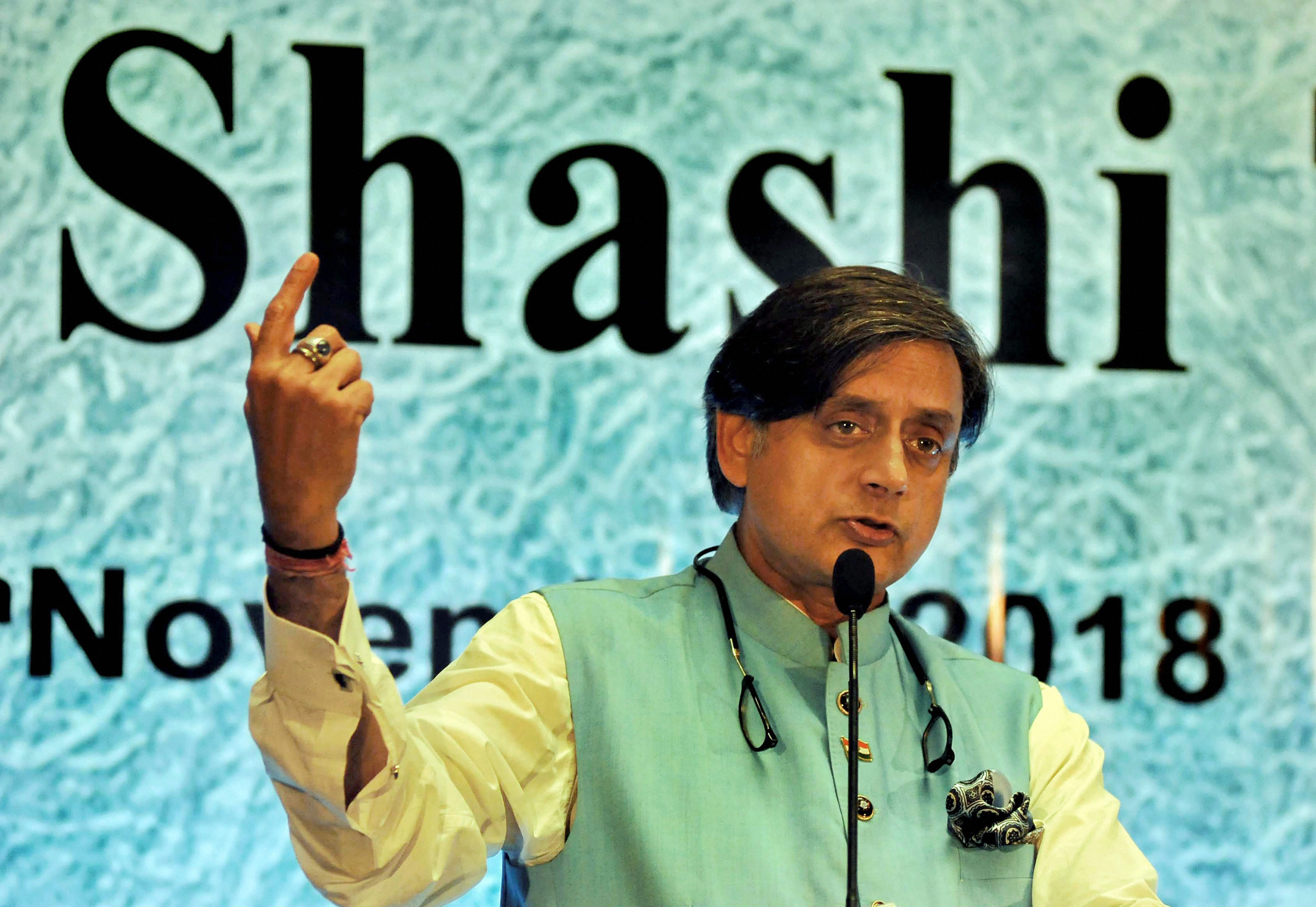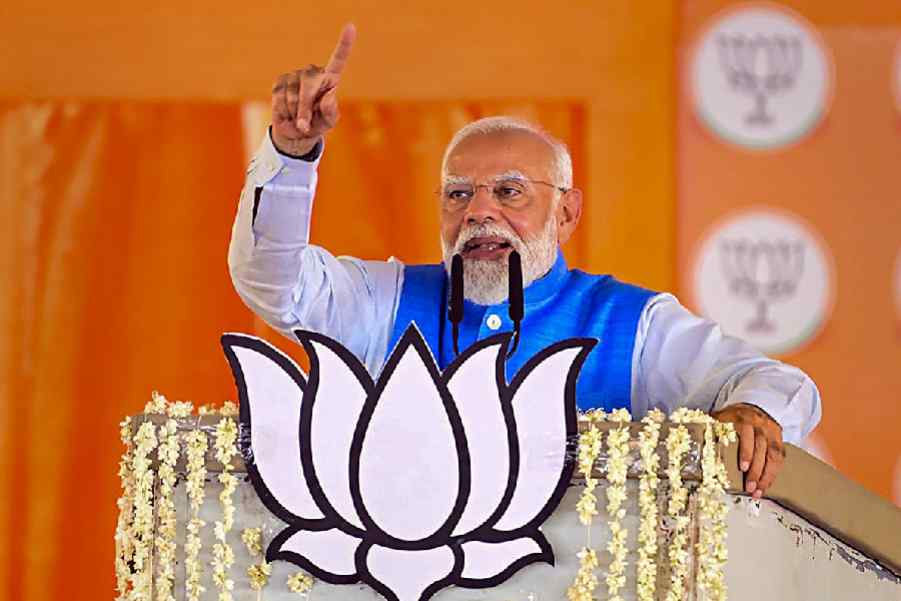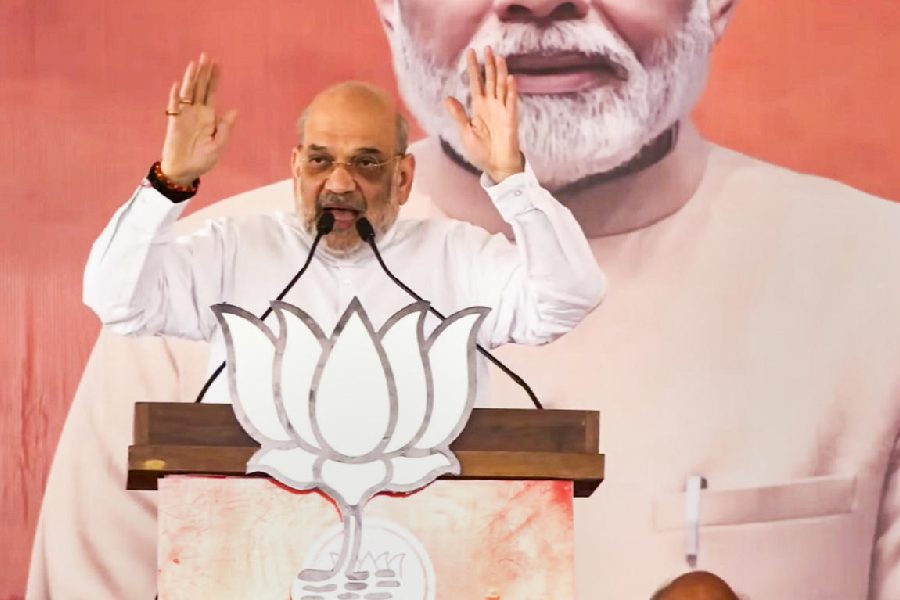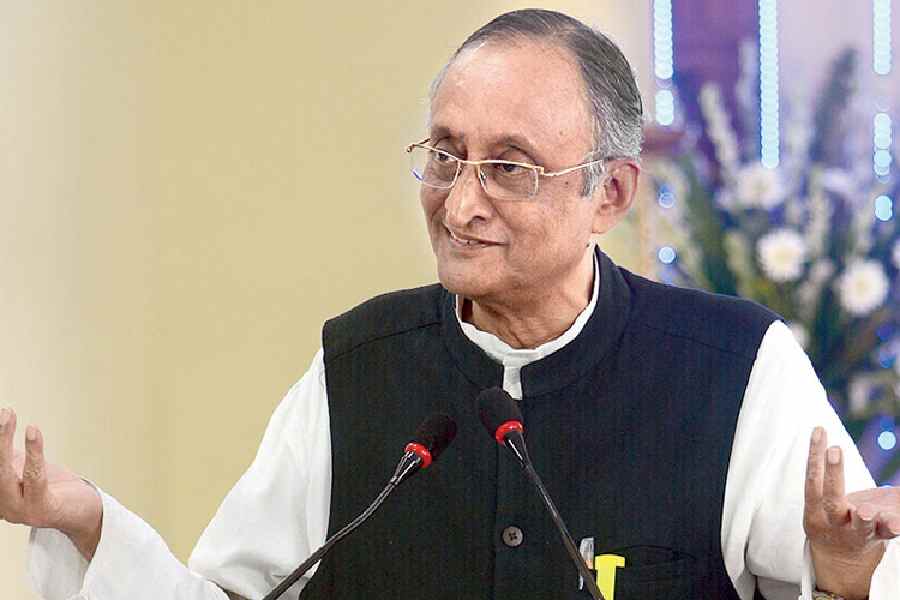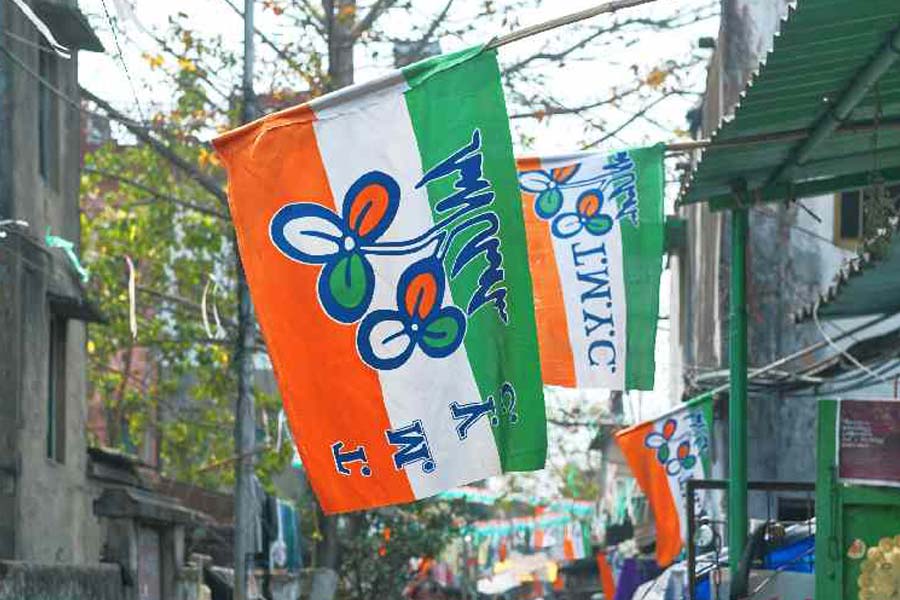Sir — One is hardly surprised to hear regressive comments from political leaders anymore. Yet it is disappointing when educated politicians do not speak responsibly. The Congress leader, Shashi Tharoor, recently criticized Arvind Kejriwal by comparing him to a ‘eunuch’ and the young, Leftist leader, Kanhaiya Kumar, said that people who were not yet agitating should wear bangles and sit at home. These comments are demeaning and must be condemned. Political leaders are supposed to inspire the masses. Such remarks from popular figures could have a significant adverse impact on the mindset of their supporters.
Anindita Ganguly,
Calcutta
Downward slide
Sir — Demonetization and the faulty implementation of the goods and services tax are responsible for India’s economic slowdown to a great extent (“Hard times”, Jan 13). The government cannot control the economy by brute force. Complex rules and theories — that the present dispensation, unfortunately, seems incapable of grasping — are needed to manage the economy.
Unemployment in the country is higher than it has been in 45 years. The sale of almost all commodities, from cars to biscuits, has fallen. The middle and lower classes of society, both in rural and urban areas, are facing severe economic problems in everyday life. The youth is naturally frustrated at the sight of their bleak future.
The economy is the foundation on which all our social and political operations are based. Fixing it could bring stability to the entire country. Yet, the government is trying to divert people’s attention from this crucial issue towards other matters such as the National Register of Citizens and the Citizenship (Amendment) Act in order to hide its economic failures. In fact, until a few days back, the home minister, Amit Shah, had been enthusiastic about building detention centres for those who would be identified as non-citizens. The entire plan would incur an enormous expense. Is it not the taxpayers’ money that would be spent for this?
According to Abhijit Banerjee and Esther Duflo, the Nobel Prize-winning economists, illegal immigrants do not add to the economic burden of any country. On the contrary, they stimulate the economy.
Will our ministers pay more attention to these thinkers than on ways to garner more votes by dividing the nation?
Tapomoy Ghosh,
East Burdwan
Sir — The unscrupulous decisions taken by the Bharatiya Janata Party-led government at the Centre are chipping away at the democratic and secular edifices of the country at an alarming rate. Far from bringing about the promised “achchhe din” or a
digital revolution, it seems that all the new policies being announced are triggering unemployment and worsening the economic crisis.
The new surge in retail inflation cut a sorry figure of 7.35 per cent last month (“Now inflation opens a flank”, Jan 14). It is even more disturbing to know that this inflation rate is running way beyond the tolerance limit set by the Reserve Bank of India’s monetary policy committee. This problem must be addressed immediately.
A.M. Lukhman,
Malappuram, Kerala
Sir — The growth rate of India’s gross domestic product has slid to a six-year low of 4.5 per cent. This decline seems to be a matter of concern for all except the Central government. People do not have jobs — unemployment is at a record high — and the purchasing power of the common citizen is shrinking every day. The Centre must take immediate remedial steps to revive the economy before it is too late to reverse the downward trend.
Chandan Kumar Nath,
Barpeta, Assam
Managing waste
Sir — The article, “Waste not” (Jan 10), by Atanu Biswas imparts a great lesson regarding the importance of reducing the wastage of food. The measures undertaken by restaurants across the world — some eateries in Taiwan and Japan impose penalties on customers who waste food — to curb this menace are inspiring. In fact, the author’s reference to the hard work put in by fishermen who fight against harsh conditions to put food on our table reminds one of the terrible fate of the ‘tiger widows’ of the Sunderbans, who lose their fishermen husbands to tiger attacks.
Yet, the amount of food wasted in certain developed countries, like the United Kingdom and the United States of America, continues to be colossal. In India, too, large quantities of food go to waste in hotels and restaurants, and at festivals and weddings. As such, it is heartening that the Food Safety and Standards Authority of India has recently begun work on a draft policy on food wastage. But this is not enough. All restaurants should introduce a token fine for wasting food in order to spread awareness about all the people who go hungry every day. The electronic and print media should also contribute to such a campaign.
Jahar Saha,
Calcutta
Sir — It is a pity that enormous amounts of food go to waste every day. Along with raising awareness about the implications of this for the many unfortunates who do not get even one square meal a day, it is important to come up with ways to redistribute excess food. There are non-governmental organizations that collect such food and give it to the hungry. Both individuals and restaurants should keep in touch with them in order to make sure that no food goes to waste.
Shreya Sarkar,
North 24 Parganas
Sir — It is good that India is considering a policy to curb food wastage. But given the authoritarian bent of the current dispensation, this policy should not become an instrument to control what people eat. Awareness needs to be spread about the food crisis in the country owing to climate change and food price inflation. Pricing at restaurants and portion control, along with incentives — like a discount to those who choose to order small portions more than once if they need it rather than one large portion that might be wasted — are likely to be more effective when it comes to curbing food wastage.
There is another form of food wastage that needs to be considered. In this age of Photoshop where surface beauty seems to matter more than inner qualities, tonnes of produce with even the slightest imperfections are rejected by both large conglomerates that run retail chains as well as individual buyers. It must be established through social media campaigns and other awareness programmes that such imperfections occur in nature and do not affect the quality of produce in any way. Perhaps a shop selling such refused, but nutritious, produce at a cheaper rate can curb food wastage as well as help those who cannot afford to buy such items like fruit otherwise.
Rima Roy,
Calcutta

